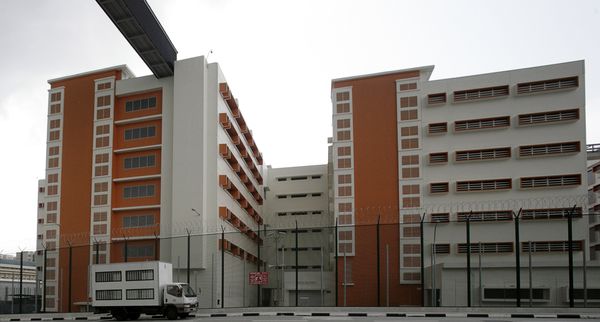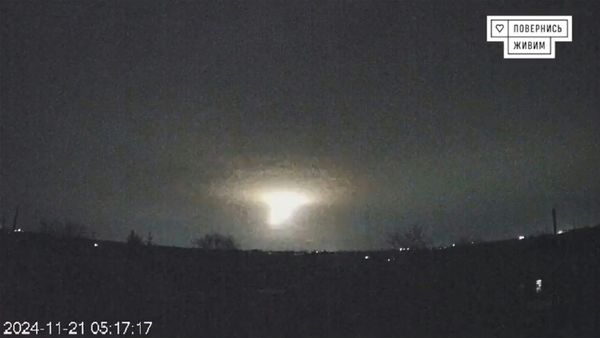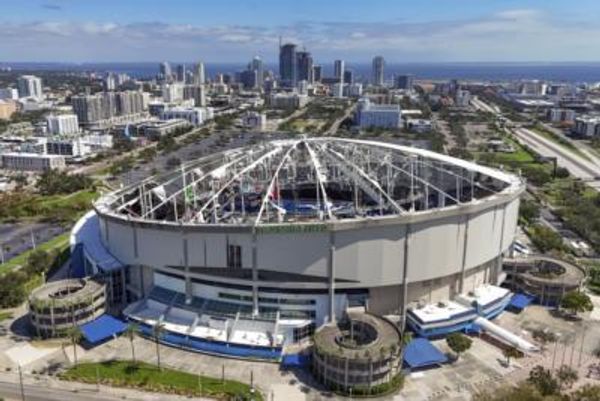
Ljubljana (AFP) - Slovenians go to the polls on Sunday for parliamentary elections expected to be a tight race between conservative Prime Minister Janez Jansa and a political newcomer in the polarised EU country.
Jansa, 63, an ally of nationalist Hungarian Prime Minister Viktor Orban and admirer of US ex-president Donald Trump, is polling head-to-head with Robert Golob, former chief of a leading power company.
Wearing a tie in the national colours of Ukraine, blue and yellow, Jansa was one of the first to cast his vote in his village of Arnace in the northwest, shortly after polling stations opened at 7:00 am (0500 GMT).
Analysts say concerns over the rule of law have boosted the opposition and Golob has a real chance of getting a majority in the Alpine nation of about two million, the first ex-Yugoslav state to join the European Union in 2004.
Tens of thousands of people have attended regular anti-government rallies, accusing Jansa of authoritarianism since he took power in March 2020.
Billing the elections as a "referendum on democracy," the opposition accuses Jansa of trying to undermine democratic institutions and press freedoms like his ally Orban in neighbouring Hungary.
"If this pace continues, we will be very close to that (tightening of state control like in Hungary and Poland) in four years," Uros Esih, a columnist at one of Slovenia's leading dailies Delo, told AFP.
He said the elections represented a "breaking point" with "liberal and illiberal political forces clashing" in Slovenia.
'Freedom to the people'
The ascendancy of 55-year-old Golob began when he took over a small Green party in January, renaming it Freedom Movement (GS).
The most recent poll from late Friday showed GS at more than 27 percent of the popular vote, slightly ahead of Jansa's Slovenian Democratic Party (SDS) with 24 percent, though analysts warn numerous voters may make last-minute decisions.
Golob also has the backing of several centre-left opposition parties, while Jansa, even with his centre-right allies, looks unlikely to be able to secure a majority in the 90-seat parliament, according to polls.
Analysts expect an increased turnout of 60 percent -- about 10 percentage points more than for the last polls in 2018 -- with many voters turning to the opposition as Jansa's style has caused civil society to "revolt".
"For the first time since the late '80s, civil society has awakened," Ljubljana University professor Vlado Miheljak told AFP.
"We hope the government will change," said Iva Babic, a protester in her early 30s, one of several thousand who gathered on Friday, carrying signs that read "Let's vote" and "Death to Jansism, freedom to the people".
'Accusations without ground'
Jansa's image in the last two years has also been hurt by rows with Brussels over his moves to suspend funding to the national news agency for more than a year and drag out appointing prosecutors to the bloc's new anti-graft body.
Though Jansa was among the first foreign leaders to travel to Kyiv, on March 15, after Russia's invasion of Ukraine, Moscow's assault has not taken centre stage in Slovenia's election campaign.
"April 24 will, in fact, be a referendum on democracy in Slovenia," Golob has repeatedly said.
Jansa, on the other hand, has promised stability with billboards proclaiming "No experiments" and "We build Slovenia".
In a cafe near the protest on Friday, Marjan Kovac, a pensioner in his late 60s, said accusations that Jansa had attacked democracy were unfounded.
"They are just part of political accusations without ground," he told AFP, adding he hoped Jansa, "a serious master in charge of the state", would get another mandate.
Jansa already served as prime minister between 2004 and 2008, and between 2012 and 2013.Only a year into his second term as premier, he was forced out by a corruption scandal.
The polls would decide "between democracy and autocracy", wrote Igor Krsinar, a columnist for Reporter Magazine, a rare critical conservative voice.







